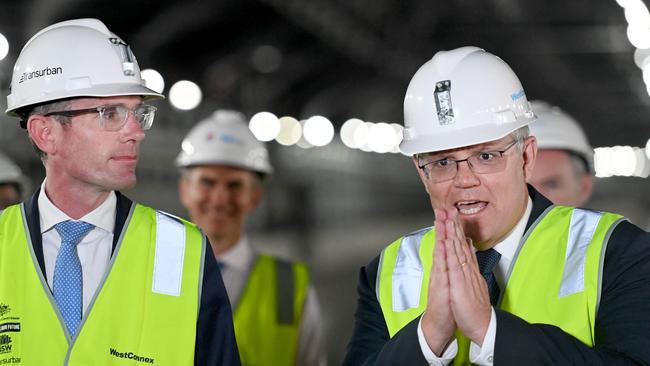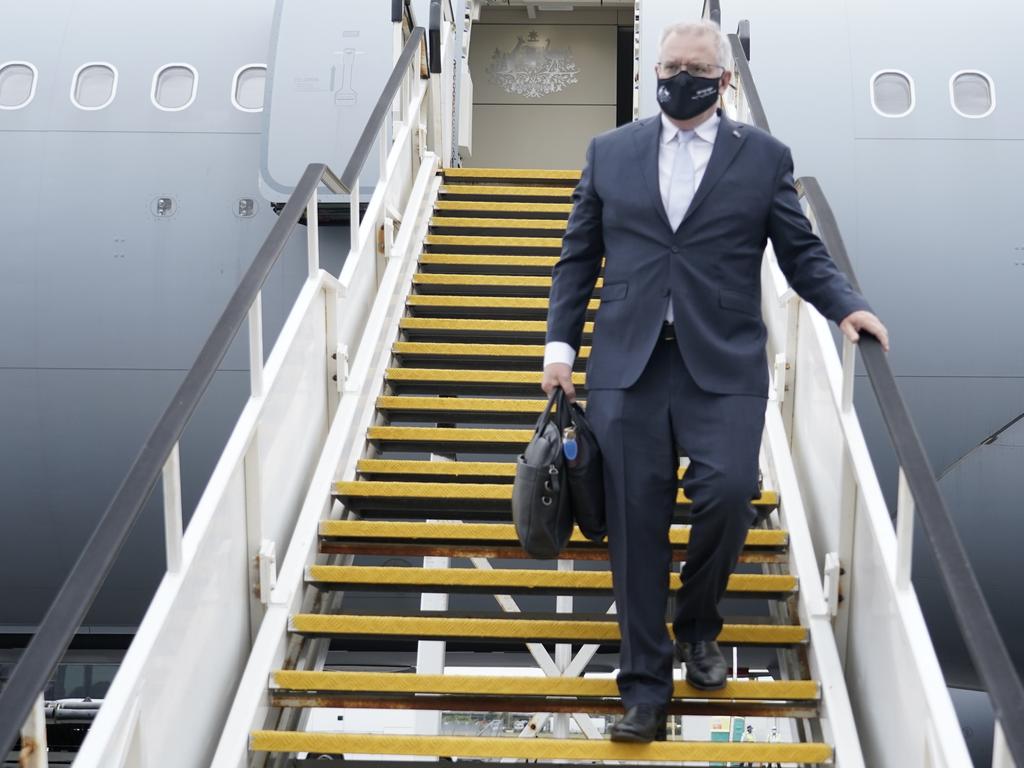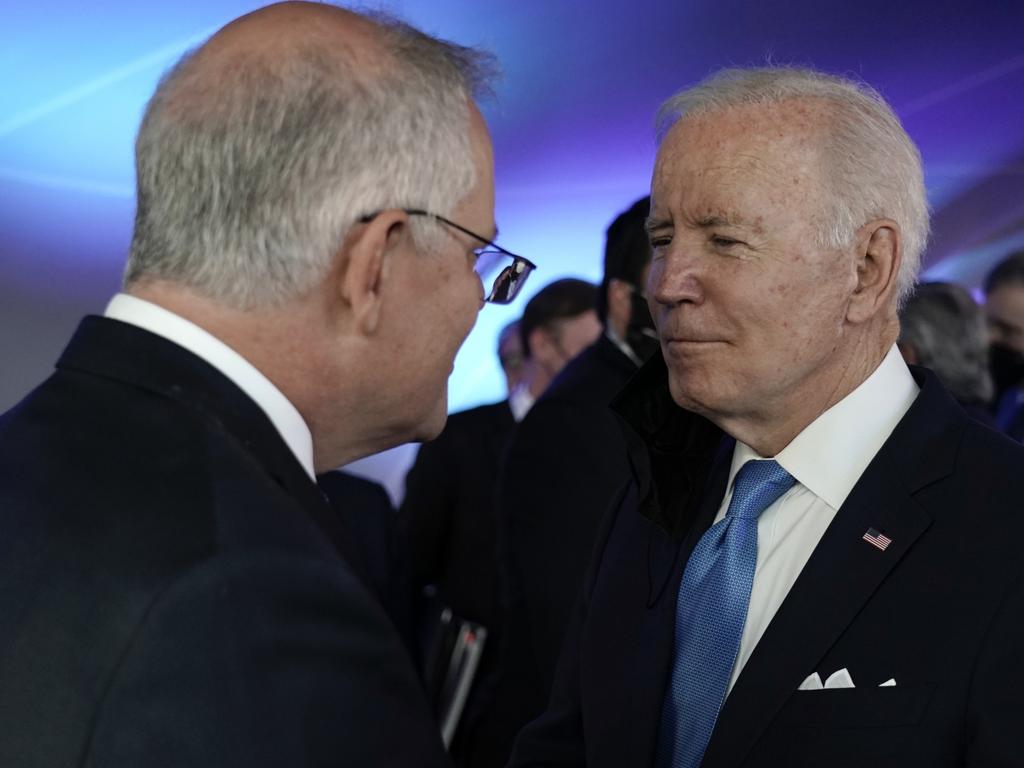Coalition’s pathway to re-election narrows
Scott Morrison has a relatively large amount of baggage for a one-term PM. Add the ‘it’s time’ factor, and nothing will save him.

There’s no “electoral fat” to absorb a hit, as they say.
However, if the campaign does focus on the economy – jobs, wages, growth, house prices, interest rates, inflation – then the Coalition is certainly still in with a shot, even if the pathway to re-election remains narrower than Coalition hardheads might like.
Which is why you will see a rapid attempt by the government to shift the debate back onto the economy now that the PM is back from overseas. On his first day back, the Treasurer called a media conference to talk about tax cuts.
To be sure, the summer will be politically sleepy, but that could work to Morrison’s advantage as he attempts to block out broader failings. It is what happens on the other side of Australia Day, when both major parties move onto a campaign footing, that really matters. Will voters sharpen their focus such that Labor’s current lead in the polls (54 per cent to 46 per cent) narrows? Will failures early on in the vaccine rollout become irrelevant, courtesy of the new reality of borders opening up and life returning to normal? And if these changes do happen, does the economy come sharply back into focus?
Politically, it may not even matter what the academic answers are to questions about which side of politics has the better policies and ideas to address economic challenges. It is about which leader can sell their messages, inject fear into voters’ minds about their opponents, and whether or not historic voter bias – when it comes to judging the economic management of the two major parties – repeats.
The Coalition are perceived to be the better economic managers; politically, it’s that simple. Labor’s track record of major economic reforms during the Hawke and Keating era doesn’t penetrate the subconscious of mainstream voters. Many probably aren’t even aware of them. Nor does the fact that Rudd’s administration avoided recession during the global economic crisis, saving heaven knows how many jobs by doing so.
A calculated appraisal of the economic policies Bill Shorten and Chris Bowen took to the 2019 election wasn’t relevant to mainstream voters, when Morrison talked up the risks such settings posed to people’s economic wellbeing. The banked credibility the Coalition enjoys as the better economic managers decided who won, with a healthy amount of misrepresentation thrown in for good measure. Remember Morrison’s references to Labor’s death taxes policy? No such policy even existed.
This time around, Labor has advantages when it comes to repelling the entrenched economic advantages the Coalition enjoys. For example, armed with the knowledge of the damage done to Team Shorten for its big-target strategy, Anthony Albanese looks set to adopt a small-target strategy, hoping to minimise the damage the Coalition can inflict. Misrepresentation by a PM with a trust deficit should be harder to make stick.
There are also known unknowns going into next year’s campaign. While we know the historical advantage the Coalition has on economic management, we do not know if that has been dented by its (mis)handling of the Covid crisis. And, indeed, by its more than eight years in office. Debt has risen, wages growth has stalled. JobKeeper saved jobs and businesses, certainly, but there have been rorts along the way.
What will mainstream voters chose to focus on? These are the unknowns.
We also can’t be sure if distractions from the economic debate will continue to dog the government, and the PM in particular. Question marks over trust, for example. John Howard faced similar challenges ahead of the 2004 election, having lost trust over the war in Iraq and the children overboard scandal. But he cleverly turned the trust debate around into one of who do voters trust to manage the economy. They unequivocally chose him over Labor and Mark Latham.
Morrison has a relatively large amount of baggage for a one-term PM. Scandals in Parliament House, frictions within the Coalition, tainted ministers and backbenchers, an unhealthy number of retirements, a “women’s problem”, failure to set up a federal watchdog, and now a disastrous trip to Rome and Glasgow overshadowed by a war of words with the French President and questionable climate-change credentials.
Morrison needs these problems to fade into the background and be overtaken by a focus on the economy, even if Labor thinks this Coalition government’s track record managing the economy hasn’t been a good one.
Political scientists have long known that post-materialist voting tendencies usually come a distant second to the selfish voter gene. For issues such as the environment or ethics in politics to trump the economy, they need to either directly impinge on the economy, or the economy needs to be stable enough such that other issues can come to the fore.
While climate change, for example, is certainly an economic as well as environmental challenge, I’m not convinced mainstream voters see it that way. Especially not in the seats that usually decide elections. Voters living in these electorates are more likely to shift their support away from the Coalition for other reasons – such as state-by-state factors related to the federation.
There is little doubt that economic challenges in 2022 and beyond should be front and centre, irrespective of whether you think the Coalition or Labor are better placed to handle them.
The housing bubble will burst sooner rather than later. Inflation and a change of approach by the Reserve Bank will almost certainly cause interest rates to head north, with all the attendant consequences. Trade wars will continue to impact the Australia economy, and the build-up of national debt (public and private) will again become an issue.
How the post-pandemic recovery plays out will profoundly impact on people’s daily lives, their job security and their prosperity. Whatever way you slice and dice it, the economy should be the focus at the next election. But we know from experience what should happen doesn’t necessarily happen. Also, the Coalition is seeking a fourth term in office. It is always possible that as the election gets closer, the “it’s time” factor grows stronger.
If that happens, nothing will save the Morrison government.
Peter van Onselen is the Political editor at Network 10 and a professor of politics and public policy at the University of Western Australia and Griffith University.






Will the economy be front and centre during next year’s federal election campaign? That is the only question that matters. If not, Scott Morrison doesn’t have a pathway to victory, given how small his parliamentary majority is and how strongly broader issues are running against him.